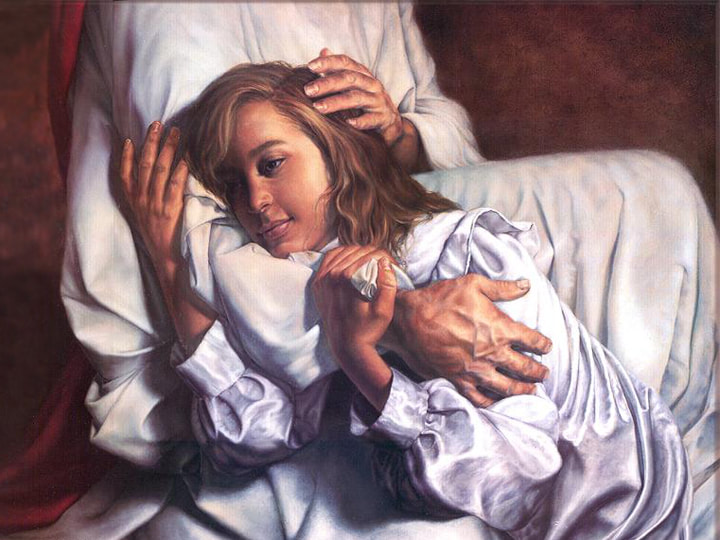|
A Christopher Wright Sermon Summary Let’s explain a few concepts regarding the end times. Some people focus too much on the millennium, a term that appears only in one passage[1] in Revelation, which is a book filled with symbolic imagery. Others focus on the rapture and Christians being snatched away[2]. Instead, our focus should be on Christ’s return. Furthermore, the New Testament has nothing on the Israel state. The Old Testament’s promises to the Israelites are fulfilled in Christ, not through any holy land[3]. Gentiles and Jews share the same inheritance in Christ[4].
In the end times, Christ will return personally[5]. All will see His glorious return[6], and the dead will be raised[7]. Christ will be the fair and merciful judge[8]. His judgments will last forever[9], with all wrongs exposed[10] and all wickedness destroyed[11]. His judgments will be based on what we know and our situations[12], according to our deeds and our lives[13]. We are justified through faith, and our deeds will show whether we lived in faith[14]. God will transform His creation into the new heaven and earth, with no more death, mourning, pain, impurity, strife, violence, war, or sin. Many will go to heaven, but earth is the final home. God will come down to be with us on earth[15]. We will openly see God’s face[16]. We will live with God in our gloriously resurrected bodies[17]. The corrupted physical creation will be cleansed of its curse. All people and animals will live peacefully together, praising and honoring God[18]. The new earth includes the city in Revelation, a secure, spacious, and beautiful place, like the garden of Eden, but with the tree of life always there for us. People will bring into the city their glorious and honorable splendor, filling the city with their cultural richness, and we will enjoy the work of our hands there[19]. Until that day, we should faithfully do what He has told us to do, so we’ll be ready for the end times. Rest in our sovereign God, who will redeem us and put all things right again[20]. Also, let us thank God for giving us a new birth and a living hope through Christ’s death and resurrection[21]. Thank God for giving us a real life in His new creation. Summarized from Chapters 9-11 of The God I Don’t Understand: Reflections on Tough Questions of Faith by Christopher Wright. 1 - Revelation 20 2 - 1 Thessalonians 4:16-17 and Matthew 24:40-41 3 - Hebrews 13:14, Acts 13:32-33, 2 Corinthians 1:20, Galatians 3:26-28, Romans 4:11-12 4 - Ephesians 2:11-3:6; Hebrews 3:12-4:11, 4:14, 8:1, 10:21, 13:10, 6:19-20, 10:19, 12:22, 12:28 5 - Acts 1:10-11, James 5:7-9; 1 John 2:28 6 - Matthew 24:27, 30; Revelation 1:7; 1 Corinthians 1:7; 2 Thessalonians 1:7; Titus 2:13; 2 Thessalonians 2:8 7 - Revelation 20:11-13, Philippians 3:21, 1 Corinthians 15:35-43, Matthew 22:23-33 8 - Revelation 5:6; John 5:22-23; Acts 10:42-43, 17:31; 2 Corinthians 5:10; Psalm 33:13-15, 103:14; Luke 23:34; 1 Timothy 1:13 9 - 2 Thessalonians 1:8-10 10 - John 5:25-29; Job 24:12, 23-24 11 - 2 Peter 3:10 12 - John 3:19-21; Romans 1:19-20, 2:12-16 13 - Revelation 20:12-13, 2 Corinthians 5:10 14 - Matthew 7:21-23 15 - Revelation 21-22; Isaiah 65:17, 25 16 - Revelation 21:3, 22:3-4 17 - Luke 24:37-39; John 21:4-13; Acts 2:24, 3:15, 13:29-30, Philippians 3:20-21; 1 John 3:2; Romans 8:11, 23 18 - Isaiah 65:25; Revelation 4:7, 5:13-14 19 - Revelation 21:24-27, Isaiah 65:21-23. 20 - Isaiah 52:7-10, Psalm 96:11-13 21 - 1 Peter 1:3
0 Comments
A 高銘謙 Sermon Summary Let’s learn from God’s promise and examples after examples of God fulfilling them in 2 Chronicles.
In Chapter 6, Solomon prayed to God about His promise in Deuteronomy 28. God responded, affirming that rebellion led to curses, but that forgiveness would come if they humbled themselves, prayed and sought God’s face, and turned from wickedness (2 Chronicles 7:12-16). Humility means to accept ourselves as God’s creation. Praying to God is an act of humility. We don’t pray if we think we can handle everything. Seeking God’s face means following God’s commands, where seeking with all your heart being similar to loving God with all your heart in Deuteronomy (2Chronicles 15:12). In the bible, to love God isn’t just a feeling, but a commitment to follow His command as an expression of that love (John 14:21). Solomon’s prayer concludes with God’s promised love (2 Chronicles 6:42). 2 Chronicles repeats the refrain: “He is good; his love endures forever,” a reminder that God will always keep His promise, specifically the promise in 7:14 (2 Chronicles 5:13). 2 Chronicles 7:14 is on admitting sin, repenting, and receiving forgiveness, like salvation through faith (1 John 1:9). In the Old Testament, prayers went through the temple. Later, John identified Christ as the temple, which Christ rebuilt in three days. So, prayers now go through Christ, not Solomon’s temple. Chapters 10-36 describe the rise and fall of the several kings, illustrating the promise of verse 7:14 in action. A common pattern repeats itself: a king would seek God and be blessed, but then grow arrogant and abandon God, leading to his downfall. But repentance brings salvation. Let’s look at the following examples in 2Chronicles:
May we learn from history so we don’t repeat these mistakes. Summary of a sermon titled “2 Chronicles on Seeking God” by 高銘謙: https://www.youtube.com/watch?v=TXE3ZjxVi9I Our hope for the future can greatly influence our choices today. For example, our feeling towards a very boring or strenuous job changes if the job could bring us a lot of money.
Similarly, if we believe death will end everything and leave us to rot like dinosaurs, then the distinction of right/wrong, kindness/cruelty, and good/bad holds much less significance. Does life really have meaning? Is life sacred? Or are we any different from trees? What we hope for shapes our life and attitude. The biblical meaning for “hope” is different from our daily usage. “I hope he will succeed” doesn’t mean he will succeed, but in the Bible, “hope” implies certainty in the outcome (Hebrews 11:1). Let’s learn about the Bible’s hope from Ephesians 1:11-14,18. Christians rest their hope in Christ (v12). God showed His love for us in giving His only Son to suffer and die for us. On earth, Christ was rejected by all. On the cross, He was rejected even by the Father. At that point, Christ had no hope and no Father so we could have both. Before Christ, we were nobody, with no future and no God (Ephesians 2:12). Through Christ’s death and resurrection, we become God’s children and possession (v14, 1 Peter 2:10). Because of Christ, we have a glorious inheritance, guaranteed by the Holy Spirit in us (v14, 18). When we receive our inheritance, all of creation will be redeemed from decay and death (Romans 8:21-24). All creation is longing for that day. When it comes, even trees will sing for joy (Psalms 96:12). But in the meantime, life on Earth is difficult. Christ lived a perfect life, yet He was tortured and crucified. He told us that if people hated Him, people would hate His followers also. But no matter what happens, ultimately everything will turn out for His glory and our good. This hope sustains and strengthens us. As God’s cherished children and possession, be alert and sober, and set your hope on our wonderful future in Christ (1 Peter 1:13). Summarized from a Tim Keller’s sermon, “Hope for the world.” https://gospelinlife.com/downloads/hope-for-the-world-6022/ 盼望塑造人 人对未来的盼望会极大地影响他今天的选择。例如,一份虽然非常无聊或艰苦的工作,如果可以带来可观的报酬,我们对它的观感可能就会改变。 同样地,如果相信死亡会结束一切,人会像恐龙一样腐烂,对事件的对错,善良抑或残忍,好还是坏,其重要性就大大降低。生命真有意义吗?生命是神圣的吗?人和树不同吗? 盼望塑造一个人的生活和态度。圣经中的“盼望”与日常使用的“盼望”不同。 “我盼望他能成功”并不意味着他就会成功。但圣经中的“盼望”意味着确定的结果(希伯来书11:1)。 让我们从以弗所书1:11-14,18学习圣经中的盼望。 基督徒的盼望在基督里(以弗所书1:12)。上帝将自己的独生子赐给我们,让基督为我们受苦和受死,上帝的爱就此显明了。 基督在地上被所有人拒绝。祂在十字架甚至被天父拒绝。在那时,基督没有盼望,也没有天父,因此让我们有机会可以同时两样都拥有。 在基督以前,我们没有未来也没有上帝(以弗所书2:12)。籍着基督的受死和复活,我们成为上帝的儿女和产业(以弗所书1:14, 彼得前书2:10)。 信徒因为基督有荣耀的基业,有在心里的圣灵为保证(以弗所书1: 14,18)。 当我们得到美好的基业时,万物将从败坏和死亡中被赎回(罗马书8:21-24)。天地万物都渴望那时刻。当那天到来时,即使是树木也会欢呼雀跃(诗篇96:12)。然而与此同时,生命在地上还是很艰难。 基督活出了完美的一生,却受到折磨,被钉死在十字架上。祂告诉信徒如果人恨祂,也会恨祂的追随者。但无论发生什么事情,最终一切都会变得更好。这种盼望托住我们,使我们刚强起来。 我们作为上帝心爱的儿女和产业要保持警惕和清醒,并将盼望寄托在基督里的美好未来上(彼得前书1:13)。 Victor Frankl, a Jew, survived through multiple Nazi concentration camps. His book, Man’s Search for Meaning, describes the experiences of many who suffered.
According to him, some turned brutal and cruel. Suppressing their pain and hardening their hearts, they became indifferent to suffering. Some who were dumped by their spouses became bitter and cynical, trivializing or demonizing the opposite sex. Some gave up all hope, shriveled up, and died. Some held on, hoping someday they might get back what they had lost (e.g. health, family, fortune, and achievements). But after liberation from the camps, with their hope not realized, they became depressed, disillusioned, and even suicidal. They tied their hope to transient objects; when they couldn’t get them, they didn’t want to live anymore. Surprisingly, according to Victor, some didn’t turn brutal and cruel. They had a hope that suffering couldn’t destroy. The differences in their hope determined their life trajectory. Concentration camps condense life into a very short time. To avoid ruination, we need a living hope. Christ suffered immensely. In great sorrow, He even sweated blood at Gethsemane. Through His suffering and resurrection, Christ took our condemnation so that we could be reconciled with God forever (2 Corinthians 5:21). For the joy set before Him, He ran the race (Hebrew 12:2). Seeing what His suffering has accomplished—our salvation—Christ is satisfied. We are the source of Christ’s living hope (Isaiah 53:11). What is our living hope? Let’s learn from 1 Peter 1:3-9. Through Christ’s suffering and resurrection, we can be reconciled to God (v9), and we receive what Christ deserves (2 Corinthians 5:21). One day, there will be no more death, mourning, crying, and pain (Revelation 21:4). Our faith may even result in praise, glory, and honor from God (v7). This is our living hope. It is independent of our circumstances. It is not based on our power, our health, or others’ approval. It is imperishable, safe, and secure in heaven (v3-4). With this living hope, we don’t need to suppress our current grief. Instead, grief and joy can co-exist. In verse 6, both are in the present tense! Current grief can even drive us closer to God. Thus, we could live joyfully even in suffering and pain. Summarized from a Tim Keller’s sermon: https://gospelinlife.com/downloads/born-into-hope-5219/ 活泼的盼望使痛苦黯然失色 维克多·弗兰克尔是名经历多个纳粹集中营而侥幸生存下来的犹太人。他的著作 “人类寻求意义”中描述了许多遭受苦难之人的结果。 维克多的书中写到有些人变得冷酷而残忍,压抑自己的痛苦,使自己的心变得刚硬,对痛苦无动于衷;有些人被配偶抛弃后,变得愤世嫉俗,渺视或贬损异性;又有些人放弃所有的盼望,生命枯干而死去. 有些人在集中营中坚持不愿放弃,盼望有天能够找回失去的东西(比如健康、家庭、财富和成就)。但当他们被解救出来后,发现自己的盼望无法实现时,就变得沮丧失望甚至会自杀。 他们将盼望寄放在短暂之事上,当无法得到它们时,就失去了活下去的愿望. 然而,维克多惊讶地发现有些人没有变得残酷无情,而是怀有一种痛苦无法破灭的盼望。不同的盼望带给人不同的生命轨迹。集中营将生命缩到很短的时间。为了不被毁灭,他们需要一个超出这个世界活泼的盼望。 基督曾遭受极大的痛苦。祂在客西马尼园里极度的悲伤中,甚至流汗如血滴。因着受苦、牺牲,基督承受了我们应得的惩罚,使我们可以永远与上帝和好(歌林多后书5:21)。祂的复活更带给我们活泼的盼望。 基督为了摆在前面的喜乐,轻看羞辱,忍受苦难(希伯来书12:2)。祂看到自己苦难的成果,就是带给我们的救恩, 就满足了。我们竟然是基督活泼盼望之源泉(以赛亚书53:11)。 那我们的活泼盼望是什么呢?让我们从彼得前书 1:3-9中学习。 我们籍着基督的受苦和复活可以与上帝和好(彼得前书1:9),得到本是基督应得的义(歌林多后书5:21)。 有一天将不再有死亡、悲哀、哭泣和痛苦(启示录21:4). 有一天我们经受考验的信心甚至可以得到上帝的称 赞 、 荣 耀 和 尊 贵 (彼得前书1:7)。 这就是我们与当前的光景无关, 安稳在天不能朽坏的活泼盼望,(彼得前书1:3-4)。它不是基于个人的力量、健康或他人的认可。 我们有了这活泼的盼望就不需压抑眼前的悲痛。相反地,悲伤和喜悦可以共存(彼得前书1: 6)。 此刻的悲痛甚至可使驱使人更靠近上帝。 所以我们即使在患难痛苦中也能喜乐地生活! Tragedy is inevitable. Let’s learn from the Lazarus’ story (John 11:1-53).
“Lord, the one you love is sick,” Martha and Mary, Lazarus’ sisters, told Christ, but still He waited for two days before going over (v6). When He arrived, Lazarus was already dead for days, and they questioned Christ for not coming sooner. To Mary’s question, Christ wept. He knew He would raise Lazarus from the dead (v4), yet He cried (v35). Christ weeps with those who weep because He feels our pain. To Martha’s same question, Christ didn’t console, but told her, “I am the resurrection and the life” (v25). He taught her the truth: He is the life, and He would make everything new, with no more death. Christ was also deeply moved with indignation (v33, 38). The original Greek word means “filled with rage and anger.” Christ wasn’t angry at others, such as the Samaritans or “Muslims,” or at Himself. He wasn’t angry at Lazarus. When Job was suffering, Job’s friends accused him of sinning, leading to God’s punishment. Don’t make assumptions about God’s intention based on your immediate circumstances. A smooth life could be a result of God giving us over to our bad desires. If we stay proud and stupid, we will perish (Romans 1:24-32). Christ warned that victims of a political massacre or a falling tower weren’t worse people than others (Luke 13:1-5). Remember that Christ lived perfectly but suffered terribly. We shouldn’t assume that our immediate circumstances are a direct reflection on God’s approval or disapproval of us. In Lazarus’ story, Christ’s anger might be for death at the tomb (v38). Then, He brought Lazarus back to life. Christ’s action led to the Pharisees plotting to kill Him (v53). Christ fixed their problem, yet He soon would be facing a much bigger one. In our life, there will be tragedy. When tragedy strikes, grieve, but grieve with hope (1 Thessalonians 4:13). Express your anger against the tragedy. Lay your pain and suffering before Christ. Our God will weep with us and teach us the truth. He is the resurrection and the life. Because of His blessings, He will make everything new and right again. Summarized from a Tim Keller’s sermon, “Truth tear anger grace.” https://gospelinlife.com/downloads/truth-tears-anger-and-grace-5247/ 悲剧中的泪水、真理、愤怒和祝福 悲剧是不可避免的。让我们从拉撒路的故事中学习这点(约翰福音11:1-53)。 拉撒路的姐妹马大和玛丽亚告诉基督“拉撒路病了”,但祂等了兩天才前去探望他们(约翰福音11:6)。当祂到达时拉撒路已经死了。她们质疑基督为什么没有早点过来。 基督面对马利亚的质疑哭了。虽然知道自己将使拉撒路复活(约翰福音11:4),祂还是哭了(约翰福音11:35),因为祂感受到他们的痛苦,与那些悲伤的人一同哭泣。 基督对于马大的同样问题却没有安慰她,而是告诉她“复活在我,生命也在我”(约翰福音11:25)。基督在教导马大真理:祂就是生命。祂要将一切都更新,不再有死亡。 基督与此同时也心里悲忿(约翰福音11:33,38)。这里原版希腊词的意思是“充满了忿怒”。 基督并没有对其他人生气,比如撒玛利亚人、穆斯林人或祂自己。基督也没有对拉撒路生气。 当约伯受苦时,朋友们控告他因为犯罪导致受到上帝的惩罚。 不要根据当前情况判断上帝的心意。平稳的生活也许是上帝让一个人被他的欲望操纵, 任凭他偏行己路。然而,骄傲和愚妄之路最终通向灭亡(罗马书1:24-32)。 基督警告说那些死于政治屠杀和死于塔倒在身上的人,并没有比其他人犯更重的罪(路加福音13:1-5)。记住基督在世活出了完美的生命,但仍然遭受极大的痛苦。所以,不要认为当前的情况就是上帝喜悦我们与否的反映。 在拉撒路的故事中,基督也许是对坟墓前的死亡而忿怒(约翰福音11:38)。 基督随后使拉撒路复活了。法利赛人为此策划杀害祂(约翰福音11:53)。基督解决了他们(马大和玛丽亚)的问题,然而祂不久将面对更大的挑战。 人生中定会经历苦难。悲剧临到时悲伤吧,但应带着盼望来悲伤(帖撒罗尼迦前书4:13)。 面对苦难表达愤怒吧,但应将痛苦放在基督面前。上帝将与我们一同哭泣,教导我们真理。复活在祂,生命也在祂, 祂的赐福会使一切都更新而美好。 |
Categories
All
|
Proudly powered by Weebly




